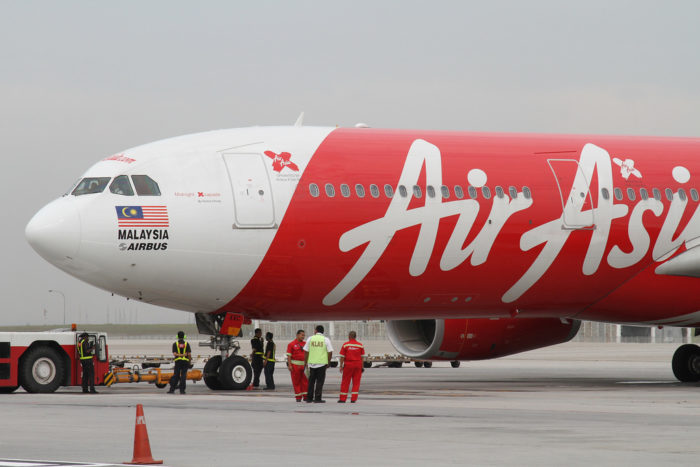

AIRASIA Group Bhd’s share price dropped to the lowest level in 48 months despite the low-cost carrier’s move to cut operational costs and shield the company from being battered by the coronavirus outbreak.
Carriers across the globe are in panic mode as millions of people cancel their flights as the virus wreaks havoc around the world.
AirAsia’s shares closed yesterday’s trading at 97 sen, down 2 sen from the 99 sen recorded on Monday — compared to around RM4.41 in February 2018. The company’s market capitalization plummeted to RM3.42 billion.
Shares of AirAsia’s long-haul unit AirAsia X Bhd declined to 7.5 sen.
AirAsia’s acting CEO Tharumalingam Kanagalingam in an internal memo to the carrier’s staff warned of the need to cut expenditures.
The carrier had reduced wage costs, suspended Free Munch for all non-operations managers and above; restricted unnecessary duty travel canceled big social events for the year and suspended external training unless required by law or regulation.
He said the company’s highest earners have agreed to take a pay cut, but did not provide any quantum. In the replacement of traveling, employees should use voice or video conferencing.
Kanagalingam, who is popularly known as Bo Lingam, said the measures are put in place to reduce costs, conserve funds and protect the future of the business.
He said the company has reviewed every option to minimize the impact on its employees.
“These measures are not permanent. Senior management and I will review them periodically until the situation normalizes.
“But we may need to announce additional measures if things continue for longer or get worse. Your manager or HoD (head of department) will explain this exercise to you in more detail,” Kanagalingam said in.
In a press statement on Monday, the acting CEO said the cost-containment measures would have zero or minimal impact on most AirAsia employees, especially those in the lower-income bracket.
He said AirAsia continues to monitor the developments and employ aggressive marketing and education strategies to instill the confidence of flying back in the traveling community.
“To further spur local and regional tourism, capacity is now being redeployed to domestic and intra-Asean flights. We are also continuously engaging industry stakeholders and tourism authorities for incentives, as well as marketing and promotional collaborations,” he said.
AirAsia is expected to register a core net loss of RM1.1 billion following lower demand and yields in Malaysia, Thailand and the Philippines on significant exposures to flights to China, Hong Kong and Macau, CGS-CIMB Research said in a note last month.
An analyst said the market outlook for AirAsia is “definitely grim for 2020”. “This year will be a watershed year. It is a matter of mitigating from deeper losses,” the analyst said.
Its competitor Malaysia Airlines Bhd has also slashed the salary of the senior management staff by 10% and removed all allowances effective this month.
The national flag carrier canceled more than 1,600 flights and the figure is expected to rise further.
Group CEO Captain Izham Ismail said in a video message to the carrier’s staff that MAB has reduced 7.1% of its capacity in the first quarter this year, including 53% of the capacity to China and 23% for North Asia, namely Korea and Japan.
Malindo Airways Sdn Bhd was reported to have asked its staff to take up to a 50% pay cut and two weeks’ unpaid leave.
As part of the pay cut, Malindo employees were asked to reduce their number of working days by up to 15 days a month, Reuters reported.
The International Air Transport Association has projected a total global lost revenue of between US$63 billion (RM265.6 billion) and US$113 billion in the passenger business, more than double than its previous assessment of US$29.3 billion revenue loss.
Markets in Australia, China, Japan, Malaysia, Singapore, South Korea, Thailand and Vietnam are estimated to see a 23% reduction in passenger numbers that translates to a loss of US$49.7 billion in revenue.
Last month, the Malaysian Aviation Commission reduced Malaysia’s passenger traffic growth forecast from between 5% and 6% to between 4.6% and 5.7% this year as a direct impact of Covid-19.